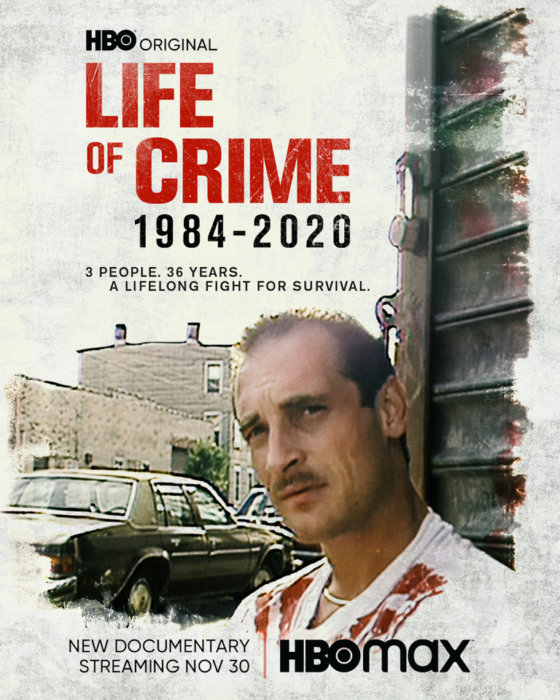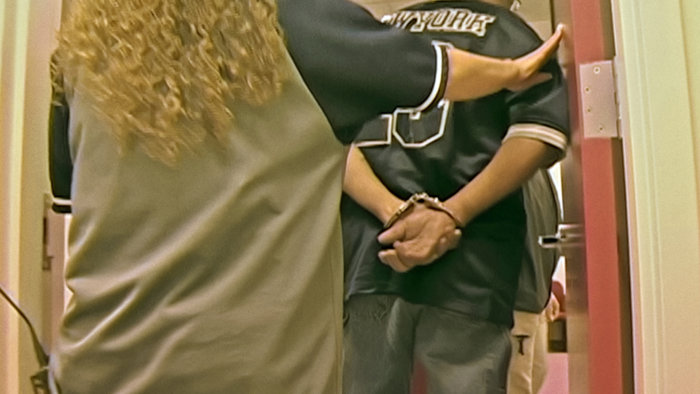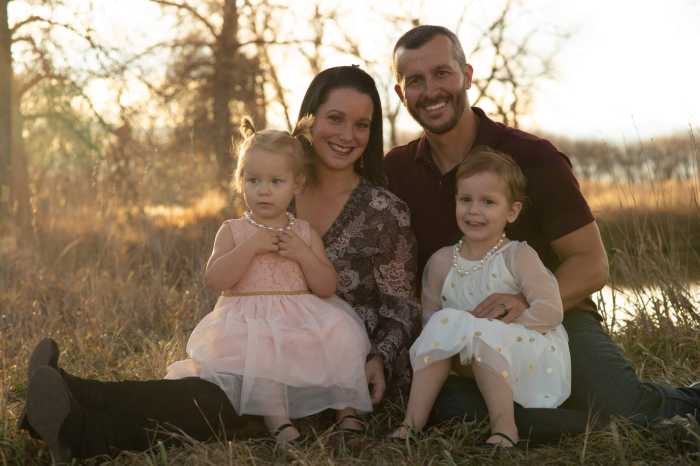When documentary filmmaker Jon Alpert’s motorcycle was stolen, his response to being a victim of a crime was a little different than most. He became curious.
“The same day, somebody else had their apartment broken into while they were at work and it got cleaned out… It was basically by being victims of crime that we were curious as to who’s doing this? And why are they doing this? Trying to understand that, I can’t say that I wanted to spend time with the police, but I was curious to spend time with the criminals,” he explains.
Those questions led Alpert down a path that ultimately resulted in three films: “One Year in a Life of Crime” in 1989, “Life of Crime 2” in 1998 and now “Life of Crime: 1984-2020” which will be premiering on HBO on Tuesday. The final addition to the documentary series spans 36 years in the lives of three friends from Newark and captures the highs and lows of the vicious cycles of drug addiction and street crime.
Alpert was there from the start to document Freddie Rodriguez, Robert Steffey, and Deliris Vasquez’s lives over this period, and through it all it became an extremely personal journey for the filmmaker himself. Getting to film everything from their crimes, to their drug usage, to their path to being sober allowed access to a real portrait of life and its struggles.

But how did he gain access?
“I initially promised them that I would never squeal on them — unless they did something violent. As long as it was crimes against poverty, I was willing to wait and let society catch up to them. But if they did anything that would hurt somebody, then I would intervene,” Alpert explains. “I think another factor in [them participating] was that they were very good at what they did. Rob could come to Philadelphia and walk down the street there, and in five minutes, he would have six schemes on how to make money — all very criminal, but all very creative. They liked the fact that somebody was acknowledging their creativity and craftsmanship, but I think the most important thing was that they also were self-observant to know they had sewn a tremendous amount of destruction. Both in their own lives and the lives of their friends and families. They were smart enough and morally sensitive enough to want to do something. They were trapped by their addiction, but they knew by showing this film it would have the potential to help people. “
Alpert also tried to help them. For all the times spent on camera committing crimes and becoming victims to a broken system and world of addiction, Alpert was also trying, off camera, to get the three friends help and into rehab and beyond. He also intended to never intervene to keep the portrait accurate. What did change, however, was his viewpoint on those who we classify sometimes as criminals.
“It certainly made me sensitive to the humanity of everybody and that we need to keep in mind what they’re doing,” Alpert continues. “They are still fellow human beings, and if we can figure out a way to relate instead of just clobbering them over the head when we find them stealing from us, I think that’s useful. It made me sensitive to the fact that we are not seeking any solutions to this and the problem is getting worse and worse. The hole that we’re digging for ourselves, for millions of people in society, the destruction of lives and property just keeps on rising exponentially. If we don’t do something about this, we will get ourselves into a situation which is not recoverable.”
This third installment takes clips from the first two films and continues on through 2020, which might be the most heartbreaking year in the anthology yet. But, there was a time before then that Alpert wanted to walk away.
When both Rob and Freddie died, the story changed for the filmmaker. And a lot of the leading up and warning signs is caught graphically on film, so much so that you see Rob passing out in a literal gutter on the side of the road. It’s unnerving and, unfortunately, realistic.
“I had spent so much time with them that it was really disheartening. This type of work is very intense and very personal, and you need to believe that there is something important and redemptive in the work that you do — otherwise you just cant do it,” Alpert recalls of his time
So, he stopped. Until Deliris called him.
Alpert was under the impression Deliris was dead; last time he had seen her she was 60 pounds and close to death. But, to his surprise she was alive and drug-free and she wanted to show how it was possible to overcome what she had on camera for people to see. “I thought, well I don’t have a choice. It’s very important in terms of respect for Deliris and for her accomplishment, but also, to show people you can do it. That’s a good message,” says Alpert. “We did great, until the pandemic.”
Deliris, like many others during COVID-19, lost every single one of her support services. Alpert talked to her just two days before she died.
“If I would have known two days later she would be dead… I would not have moved forward with this film. But that is the tyranny of documentary filmmaking, we cannot change the facts,” he continues. “This pandemic, real life and the potency of the drugs are around and out there on the streets. It gave us this ending that is unfortunately the end of the story.”
How Alpert imagined the end of the film was with a parade through Newark celebrating Deliris. He had talked to the mayor just a few short months before the pandemic hit, and they were simply waiting for the weather to get warmer. Alpert prefers happy endings. When he writes fiction he always makes his endings optimistic in that way, but the filmmaker has been steamrolled by reality.

“I was hoping for this epic Hollywood ending. You see all the warnings in the film up until this particular point, this [would have been a] spectacular celebration of heroism and hope that would inspire people to follow Deliris’s path. And the pandemic destroyed that. So, I could pretend that there was a different ending, but that’s not documentary filmmaking,” he finishes. “The one thing I know how to do is hold up this mirror. The picture in this mirror is not a pretty picture, but, if we turn our gaze away from the really horrific portions of this film, then the problem that we desperately need to fix is not going to get attended too.”
“Life of Crime: 1984-2020′”will premiere on HBO Nov. 20.






























